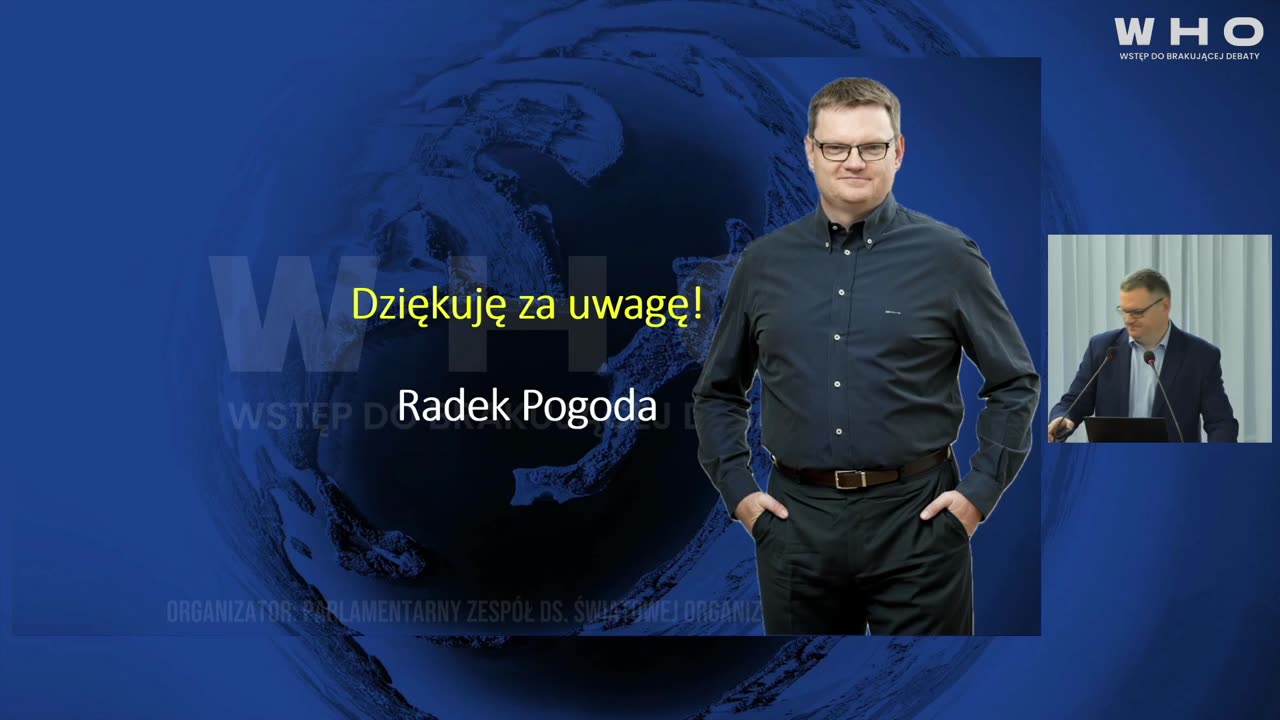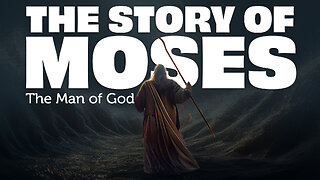Premium Only Content

WHO - the background by Radek Pogoda
The World Health Organization (WHO for “World Health Organization”) is a United Nations specialized agency dealing with international public health issues, established with the best of intentions to help coordinate responses to major health problems and advise governments accordingly.
It was founded on April 7, 1948, two years later it had 60 member states, the number rose to 103 in 1960, and by 1980 WHO had 154 members. Poland - then the People's Republic of Poland - was introduced to the WHO by Comrade Bierut, adding the People' s Republic of Poland to the authoritarian member states mostly making up the organization. In the 1980s, the majority of WHO members - as many as 64% - were regime states. Today, the situation is not much better. In 2023, according to The Economist Intelligence Unit's Democracy Index, of the 167 countries in the WHO, only 14.4% of the countries are classified as “full democracies,” 29.9% of the countries are described as so-called “flawed democracies,” and the remaining countries are “hybrid regimes ‘ (20.4% of the countries in the ranking), and ’authoritarian regimes”, which account for as much as 35.3% of the member countries - the total of regime states is 55.7%.
WHO can create international laws that are binding on members, without the need to ratify resolutions or resolutions, laws that come into force by decision of most non-democratic states. An example is the International Health Regulations (IHR), an instrument of international law binding on member states, creating rights and obligations for all of them. Of course, the effectiveness of the agreements requires the consent of the members, but this consent is given in what is known as an opt-out procedure, meaning that if a state does not notify rejection or make reservations, then after a specified period in the resolution, the agreement automatically becomes binding, without debate or the need for parliamentary ratification.
For decades, we have witnessed a significant change in the trend of the intended noble mission of advising on health issues, as funding streams have shifted toward private financing. This has led the WHO to become a much more centralized and externally driven body, with private and corporate funders creating and directing programs. Noble in intent, its mission to advise on health issues has been disrupted for many years by the financial and personnel scandals that afflict WHO.
-
 LIVE
LIVE
Major League Fishing
2 days agoLIVE Tackle Warehouse Invitationals, Stop 1, Day 2
256 watching -
 3:12:37
3:12:37
I_Came_With_Fire_Podcast
12 hours agoNOC Spy: CIA uses SATANIC RITUAL ABUSE to make SLEEPER Cells
29.4K4 -
 28:42
28:42
CatfishedOnline
1 day ago $1.67 earnedWoman Insists Morgan Wallen Relationship Isn't a Romance Scam!
24.6K -
 16:25
16:25
TSPLY
1 day agoNew CNN / MSNBC Meltdown Moments Of Getting Mad At Donald Trump In February
30.8K21 -
 8:33
8:33
scoutthedoggie
6 hours agoAirsoft War Games Scotland
45.8K5 -
 4:56
4:56
Kirill MultitoolOfficial
1 day ago $3.35 earnedSurvival TIPS and usefull bushcraft DIY in the wild
53.5K3 -
 27:25
27:25
ArturRehi
1 day agoThis is How Dictatorships are Formed
29.6K5 -
 59:35
59:35
AlaskanBallistics
18 hours ago $0.86 earnedI Love this Gun Episode # 11
21.2K1 -
 1:21:01
1:21:01
BibleUnbound
21 hours agoThe Complete Story of Moses: The Man of God
24.8K4 -
 15:56
15:56
Chris From The 740
9 hours ago $0.48 earnedFenix LR36R Review: The Most Powerful Light I've Ever Tested!
15.7K1